My alarm went off at 5:45 this morning, and by 6:00 we were already on the way to Ham Thuan Nam High School for the opening ceremony of the new school year. This school is one of the oldest in the region, has a very good reputation, and welcomes about 1,500 students from grades 10 to 12.
When we arrived, we were invited for tea with the school’s director, the president of the province, my NGO’s director, and other representatives who were also there to award scholarships. At 6:58 sharp, the ceremony began, and I found myself seated in the front row on wooden chairs alongside the directors and officials.
The event was both spectacular and symbolic. It opened with a group of boys marching in with large Vietnamese flags, followed by the entrance of the new grade 10 classes. Then came a series of performances—songs and dances about Vietnam, some with national flags printed on the costumes, others with flowers, all set against images of the country projected in the background. The flags were raised high, and the national anthem was sung with strength and pride.
The director read a letter from the President of Vietnam, encouraging students. This was followed by speeches: from the president of the province, the director of the school, and finally from a student representative, who promised that her classmates would dedicate themselves to their studies this year.
After that, the scholarships began to be distributed. The province awarded ten scholarships to students, accompanied (quite unexpectedly!) by the Pirates of the Caribbean soundtrack. Then came prizes for top academic results, more scholarships from two different banks, and even the school itself provided support for five students from disadvantaged families. Thien Chi awarded scholarships to twenty students.
At one point, everyone gathered around the screen to watch the national broadcast of the opening ceremonies across the country. It looked very similar to ours, only on a larger scale, and was followed by a video tracing the evolution of education in Vietnam since 1945. Altogether, the ceremony lasted around two hours and forty minutes, finishing at 9:40.
Scholarships are especially important at the high school level because this is the time when dropout rates are highest. Many families pull their children out of school, both because education costs can represent 50–60% of their income, and because teenagers are already strong enough to work and contribute financially.
During the ceremony, the students sang “Việt Nam – Tự Hào Tiếp Bước Tương Lai” several times. The melody was uplifting, and the lyrics were strongly patriotic, calling for resilience, pride, and the promise of a brighter future for Vietnam.
As for me… I didn’t understand a word of the speeches, except the constant repetition of “Vietnam.” I had never seen so many Vietnamese flags displayed together.
One thing struck me: the enormous sense of resilience. I even noticed sweatshirts with the phrase “Don’t look back in anger.” When I mentioned it to my internship supervisor, he confirmed that this is how many Vietnamese see things—there’s no use dwelling on the past; what matters is building a better future.
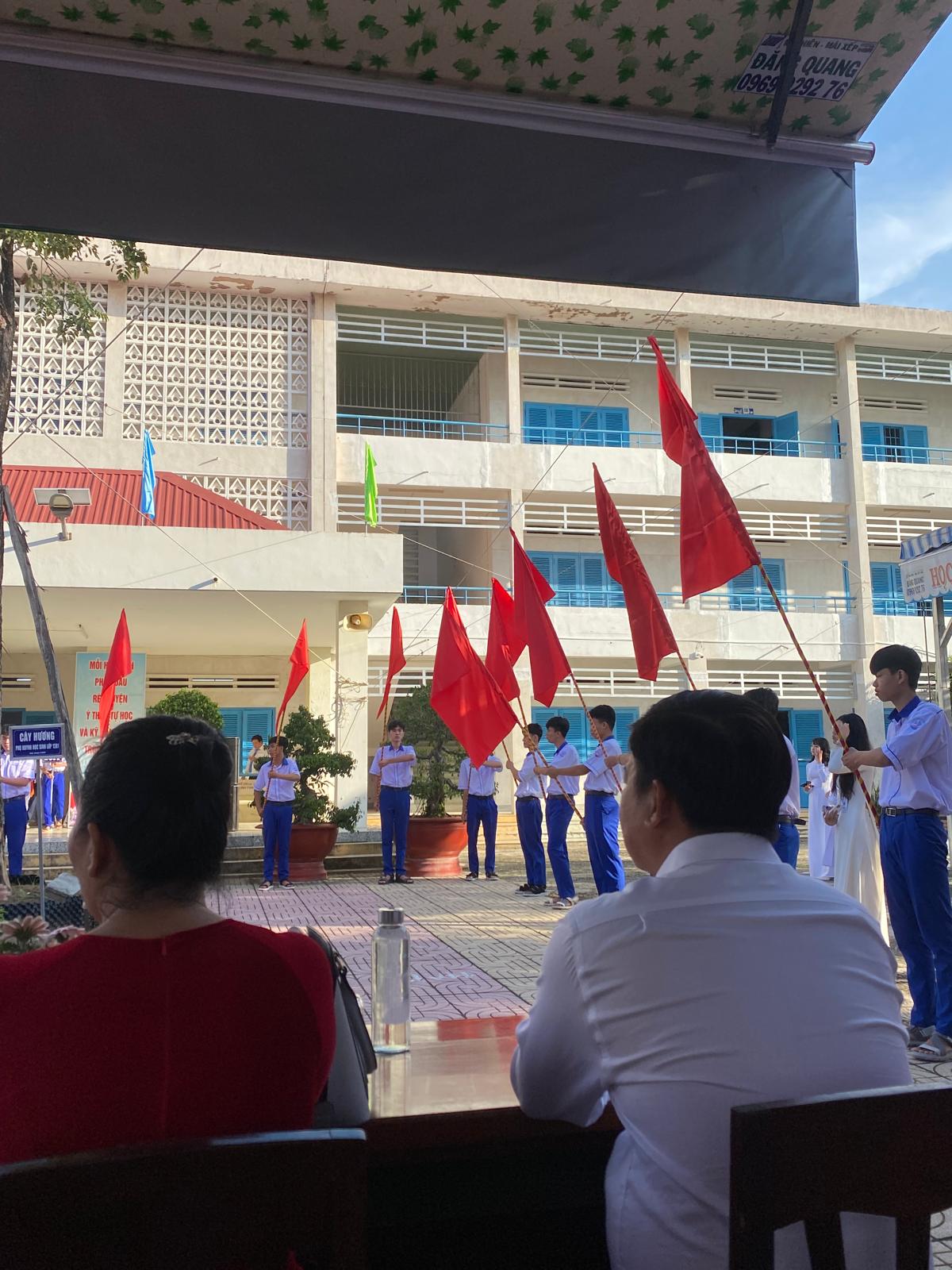
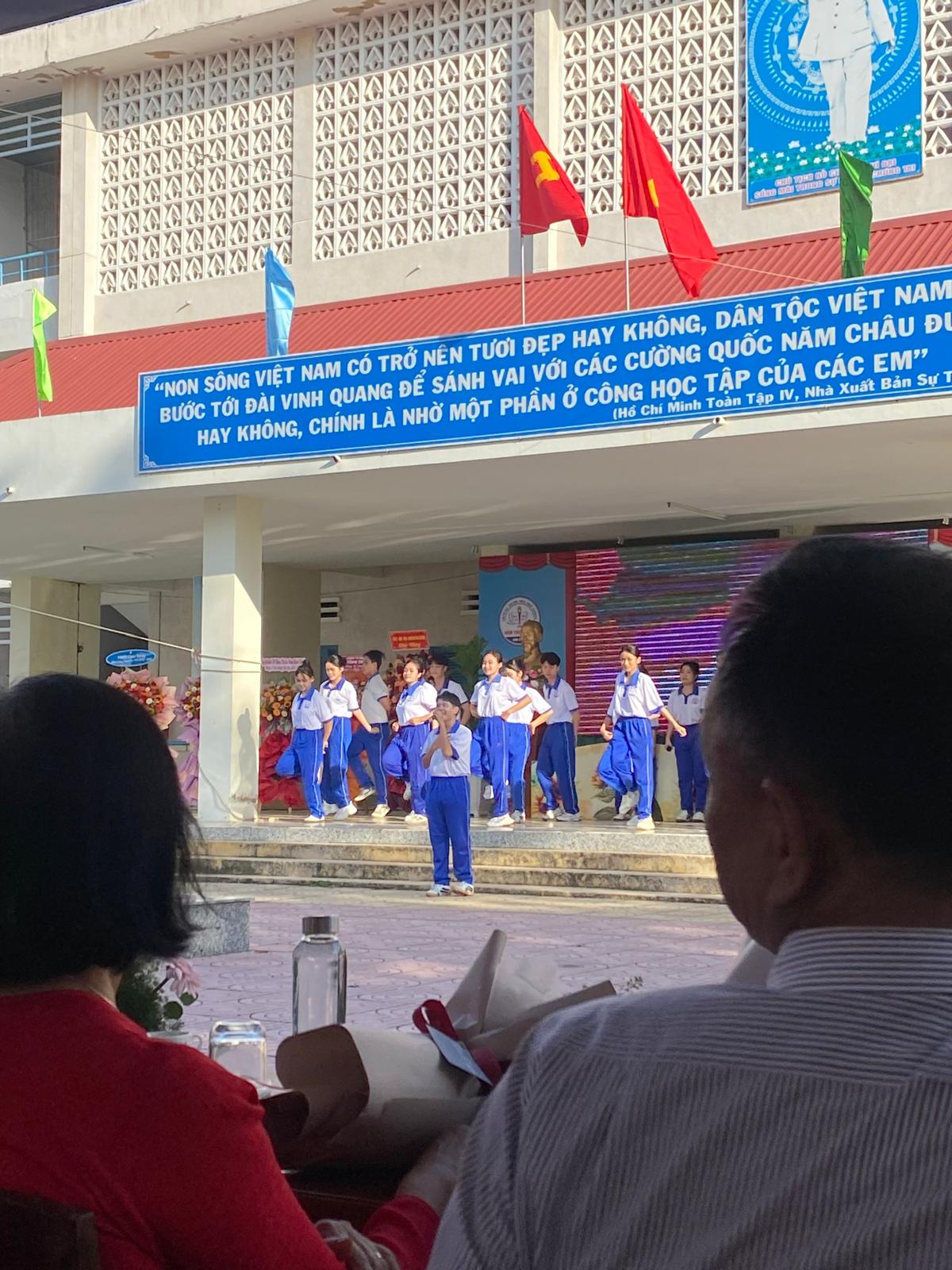
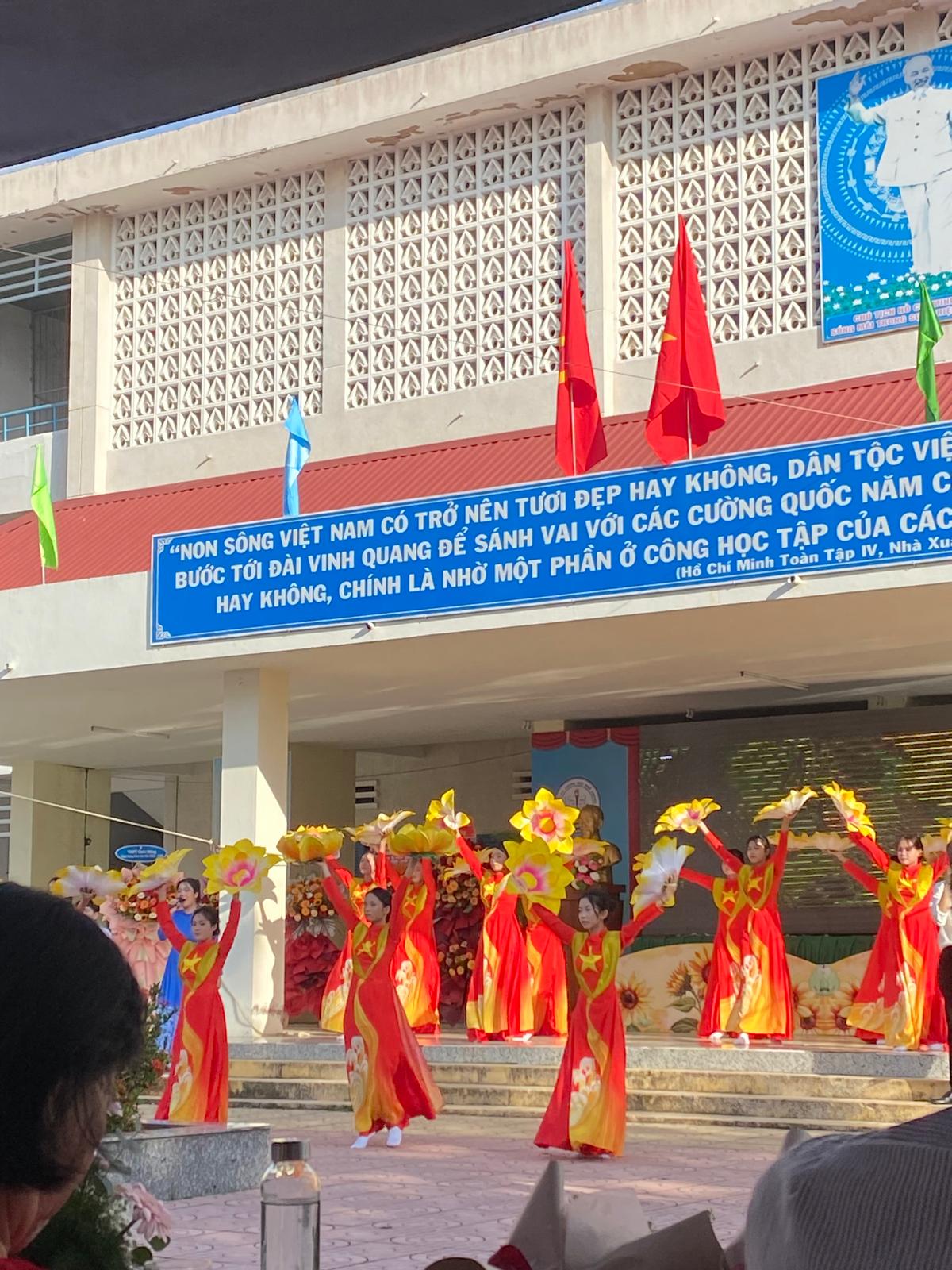
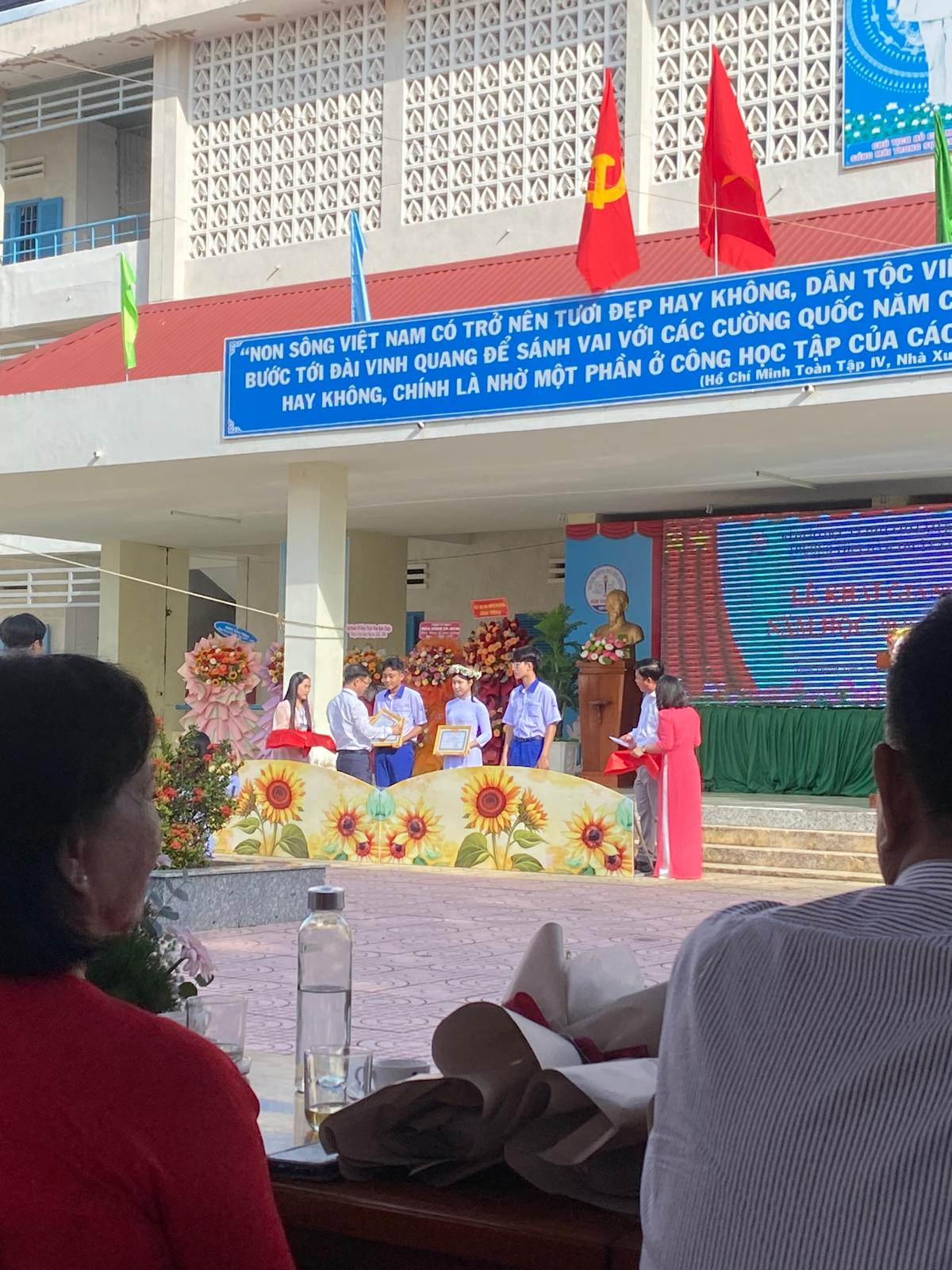
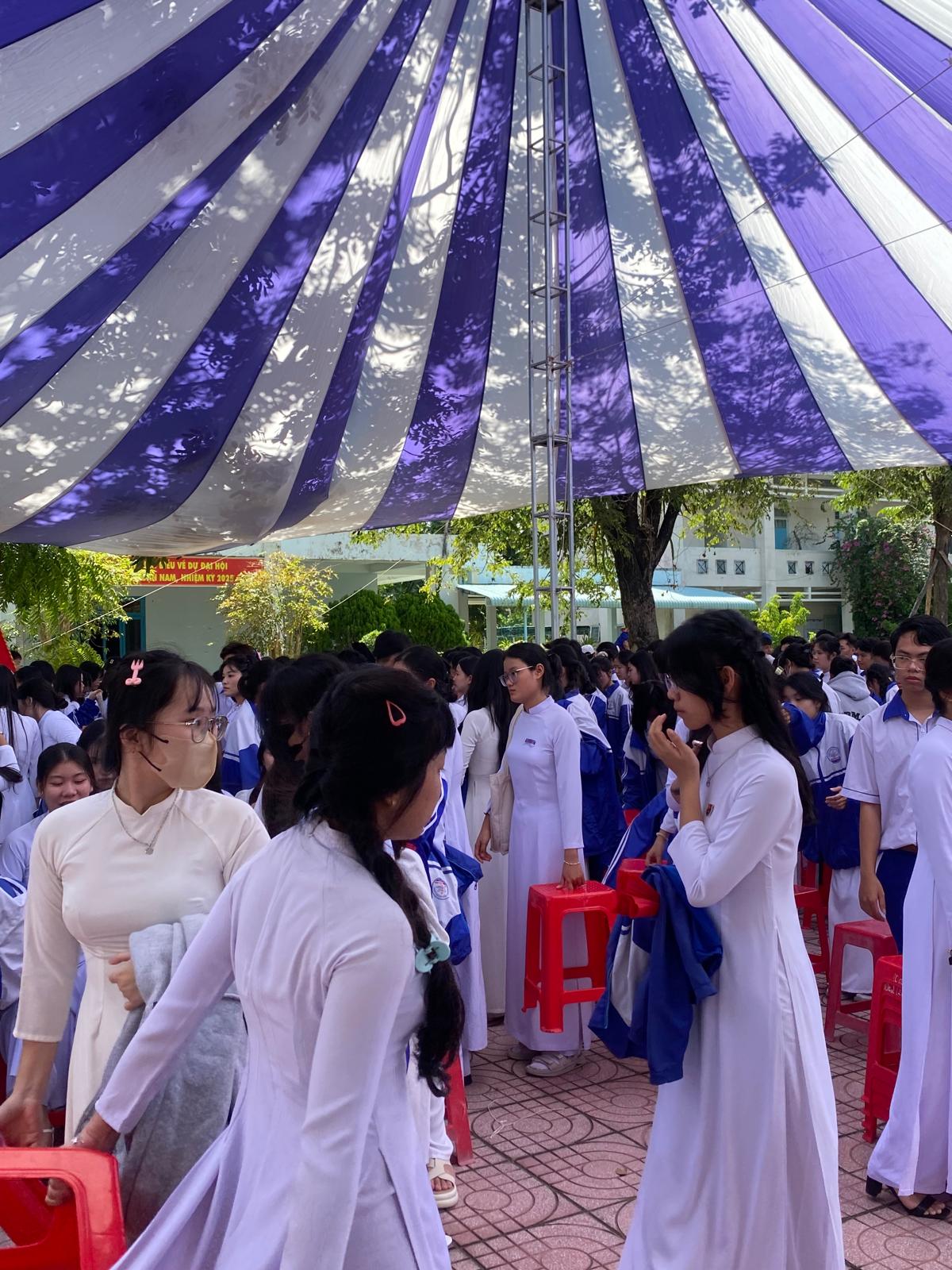
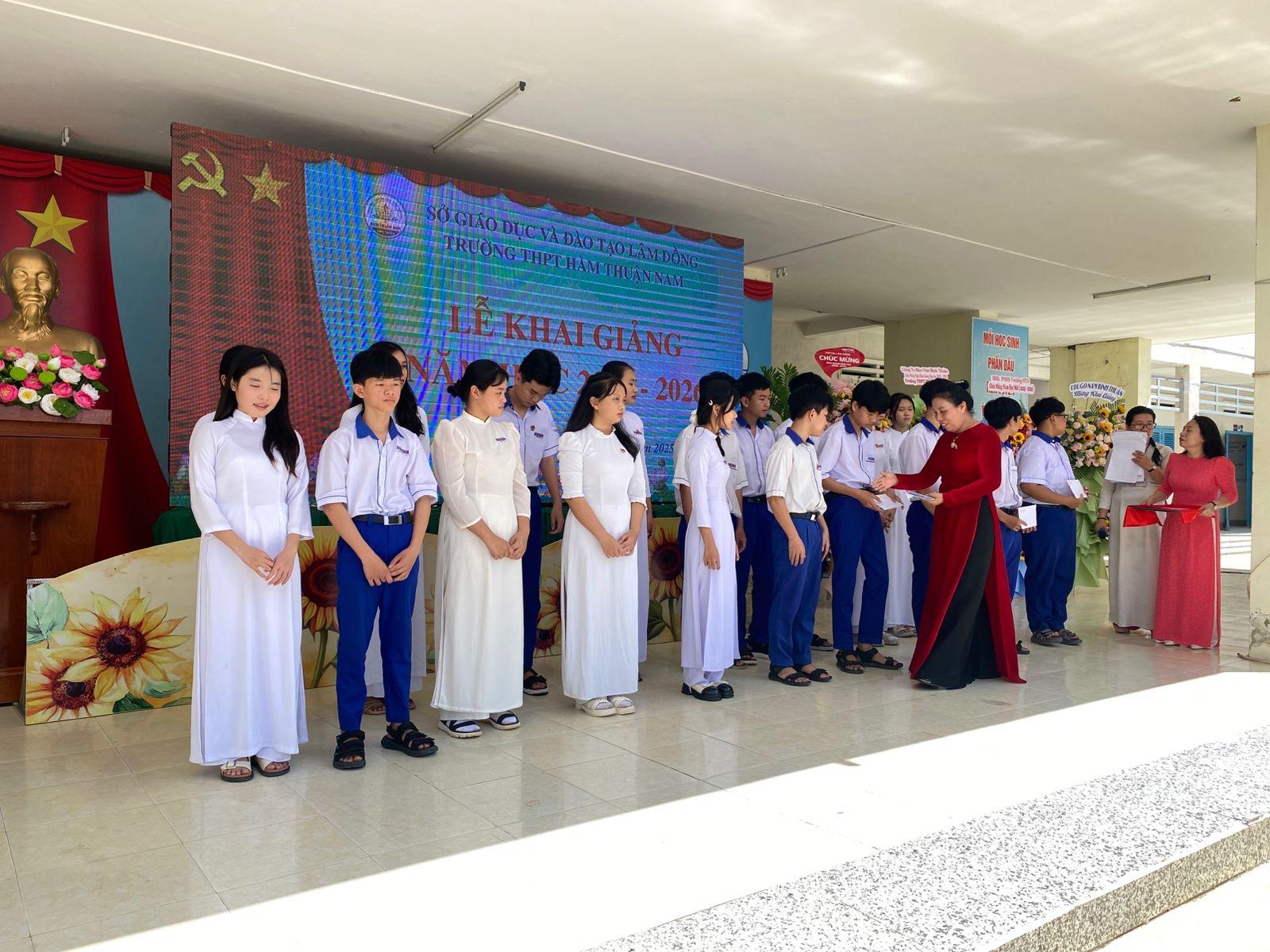
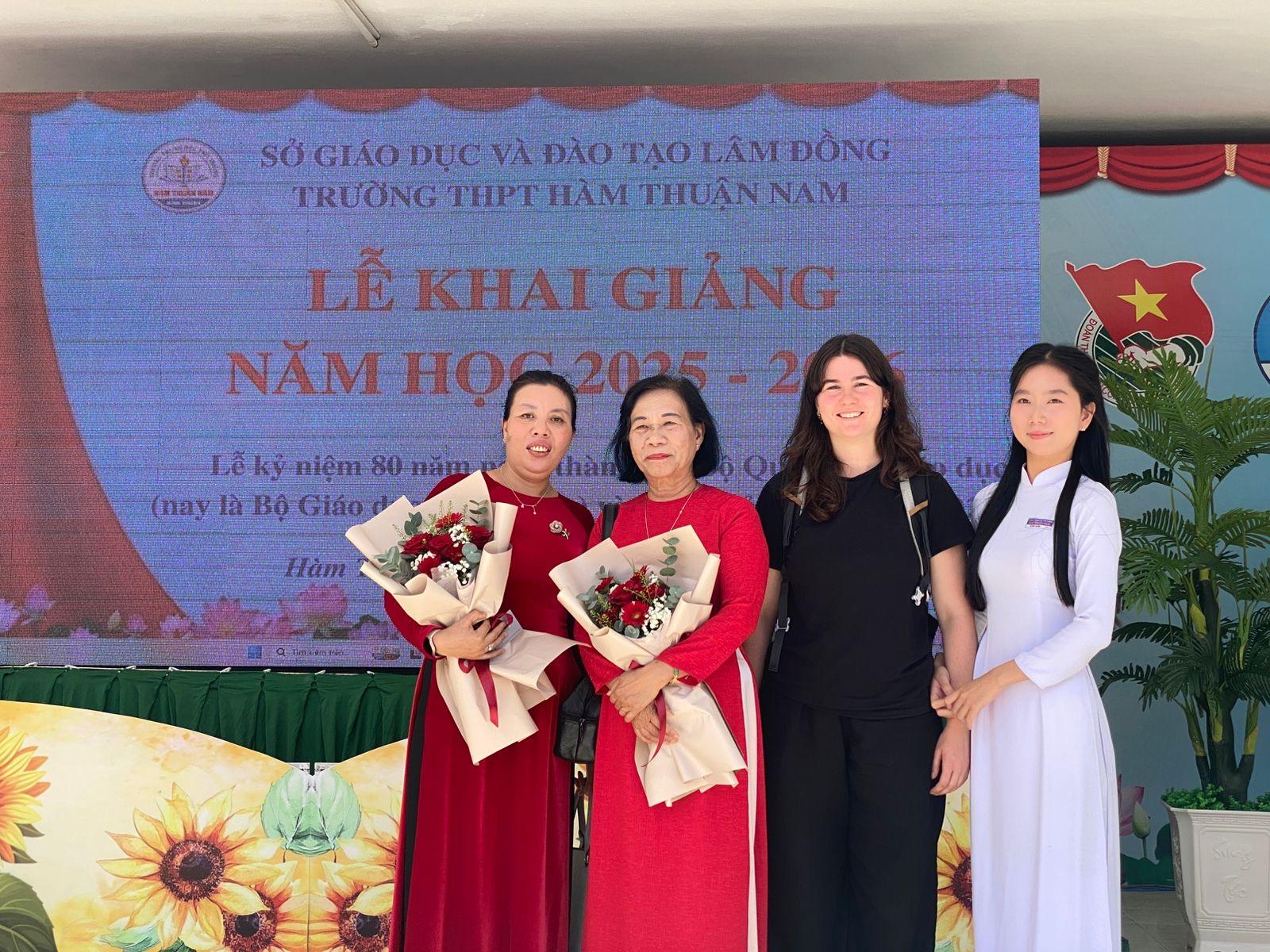
It was a fascinating morning, filled with contrasts: pride, resilience, and hope for the next generation. And that is how my first week working here ends.
Leticia